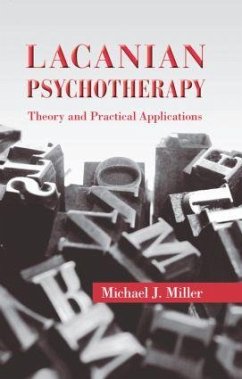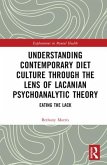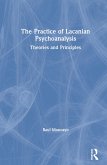The work of Jacques Lacan is associated more with literature and philosophy than mainstream American psychology, due in large part to the dense language he employs in articulating his theory including often at the expense of clinical illustration. As a result, his contributions are frequently fascinating, yet their utility in the therapeutic setting can be difficult to pinpoint. Lacanian Psychotherapy fills in this clinical gap by presenting theoretical discussions in clear, accessible language and applying them to several chapter-length case studies, thereby demonstrating their clinical relevance. The central concern of the book is the usefulness of Lacan's notion that the unconscious is structured like and by language. This concept implies a peculiar manner of listening ("to the letter") and intervention, which Miller applies to a number of common clinical concerns including including case formulation, dreams, transference, and diagnosis including all in the context of real-world psychotherapy.
First Published in 2011. Routledge is an imprint of Taylor & Francis, an informa company.
Hinweis: Dieser Artikel kann nur an eine deutsche Lieferadresse ausgeliefert werden.
First Published in 2011. Routledge is an imprint of Taylor & Francis, an informa company.
Hinweis: Dieser Artikel kann nur an eine deutsche Lieferadresse ausgeliefert werden.








